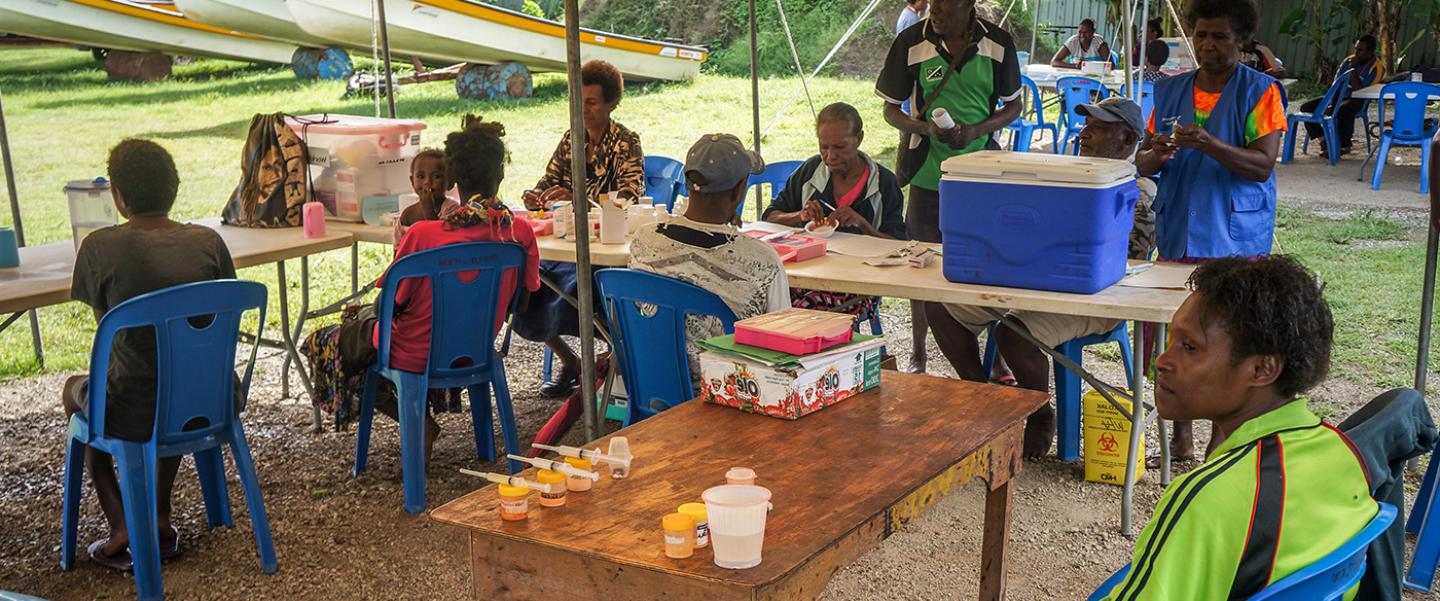HIGHLIGHTS
- HIV and multi-drug resistant TB are disproportionately affecting certain populations
- Abt Global supports grant management and logistics and provides technical assistance for the delivery of health services in Papua New Guinea
- A project is overseeing a multi-million dollar investment to respond to the TB outbreak
The Challenge
An alarmingly high prevalence of HIV in certain populations in Papua New Guinea (PNG) is limiting the nation’s ability to advance its economy and achieve lasting prosperity. The country also is dealing with an emergency situation with the rise of multi-drug resistant tuberculosis (DR-TB). Other pressing communicable diseases such as malaria continue to be challenges to health security, particularly in rural, hard to reach areas.
The Approach
At the direction of the Australian government, Health and HIV Implementation Services Provider (HHISP) has been overseeing a multi-million-dollar investment in strengthening the response and controlling the DR-TB outbreak. Efforts have focused on identifying new cases, increasing case notification, and improving treatment outcomes. This includes expanding outreach activities, training of local health workers for basic TB smear microscope and for directly observed treatment in addition to setting up community sites for directly observed treatment.
The Results
HHISP has resulted in improved treatment rates in one high-prevalence area, with DR-TB at 87.3% and XDR TB at 100%, compared with treatment success rates published for Australia of 81%.
Health workers, scientists and researchers received training and supervisory visits at laboratories and research institutions to improve skills. HHISP strengthened health system capacity through capoital investments and logistical coordination.
HHISP is facilitating an innovative trilateral partnership among Australia, the People’s Republic of China, and Papua New Guinea to strengthen malaria diagnostic and research services. Investments include building the capacity of the national laboratory and network of provincial laboratories to provide routine malaria testing and diagnosis. Future efforts will include a decentralised quality assurance program.
Learn More:
Trilateral Malaria Project Mid-Term Review: Report
Trilateral Malaria Project Mid-Term Review: Management Response
